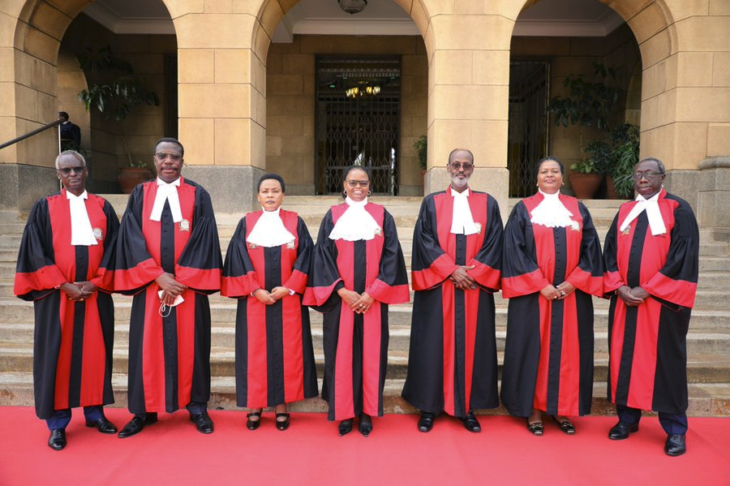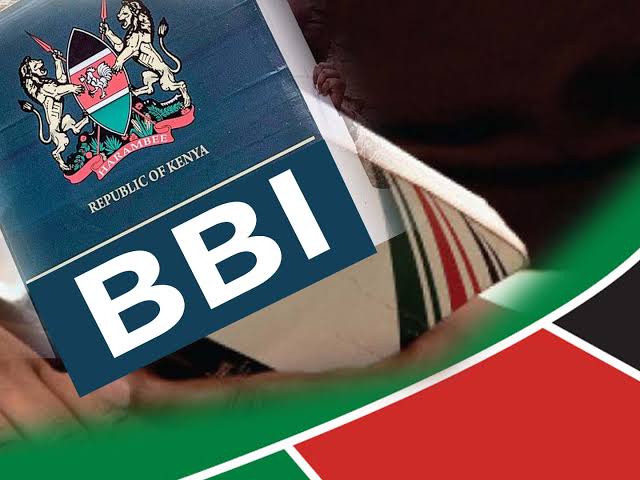NAIROBI, Kenya, Mar 31- The quest to amend Kenya’s 2010 constitution came to a brutal halt on Thursday, after a majority of Supreme Court Judge’s declared the Building Bridges Initiative constitutional amendment process unlawful.
The 7-judge bench narrowed its BBI appeal ruling on 7 areas that included basic structure doctrine, whether the President can initiate a popular initiative, creation of 70 new constituencies, whether the President can be sued, public participation, whether the Independent Electoral and Boundaries Commission (IEBC) was properly constituted and the referendum questions.
The bench comprised Chief Justice Martha Koome, Deputy Chief Justice Philomena Mwilu, Mohamed Ibrahim, Smokin Wanjala, Njoki Ndung’u, Isaac Lenaola, and William Ouko.
The majority of the Supreme Court Judges found that President Uhuru Kenyatta and former Prime Minister Raila Odinga led initiative was unconstitutionally initiated.

Chief Justice Martha Koome led the bench in issuing individual rulings, that the majority found the amendment process was illegally initiated by the President.
Justice Njoki Ndungu and her counterpart Justice Lenaola differed from their 5 colleagues, saying the President did not initiate the constitutional amendment process.
Justice Ndungu said even if he did, it would still have been within his right.
“The president in appointing the BBI task force was discharging his constitutional mandate … and consequently there was no basis for concluding that his action contravened the constitution to deprive him of immunity,” she ruled.
“I perused carefully, all the judgments looking for proper reasons for the decision to exclude the president from the amendment process and I cannot find a logical constitutionally-based explanation.”
On the question of President Kenyatta’s involvement, Justice Dr. Smokin Wanjala, “the President cannot initiate the popular initiative. I find it difficult to distance the President from the BBI process. He originated this initiative.”
Justice Ouko held similar views, saying the amendment process had its roots in the handshake between President Kenyatta and Odinga.
“Although the BBI national secretariat does not disclose its ancestry, its family tree, its gene cannot be concealed… the great-grandfather is the ‘Handshake’, the grandfather is the task force, its father is the steering committee,” he ruled.
In a summarized judgment, the Chief Justice further stated that the creation of 70 new constituencies was also against the law.
In a unanimous ruling, the court found that the Independent Electoral and Boundaries Commission was properly constituted, during the process.
IEBC, as mandated by the constitution, was involved in the verification process of the signatures of Kenyans supporting the amendment process.
At that point, the electoral body only had 3 commissioners, after four others resigned at an earlier date.
They had not been replaced.
On the question of basic doctrine, the majority of Judges ruled that it is not applicable in Kenya. Justice Ibrahim differed.
Want to send us a story? Contact Shahidi News Tel: +254115512797 (Mobile & WhatsApp)


